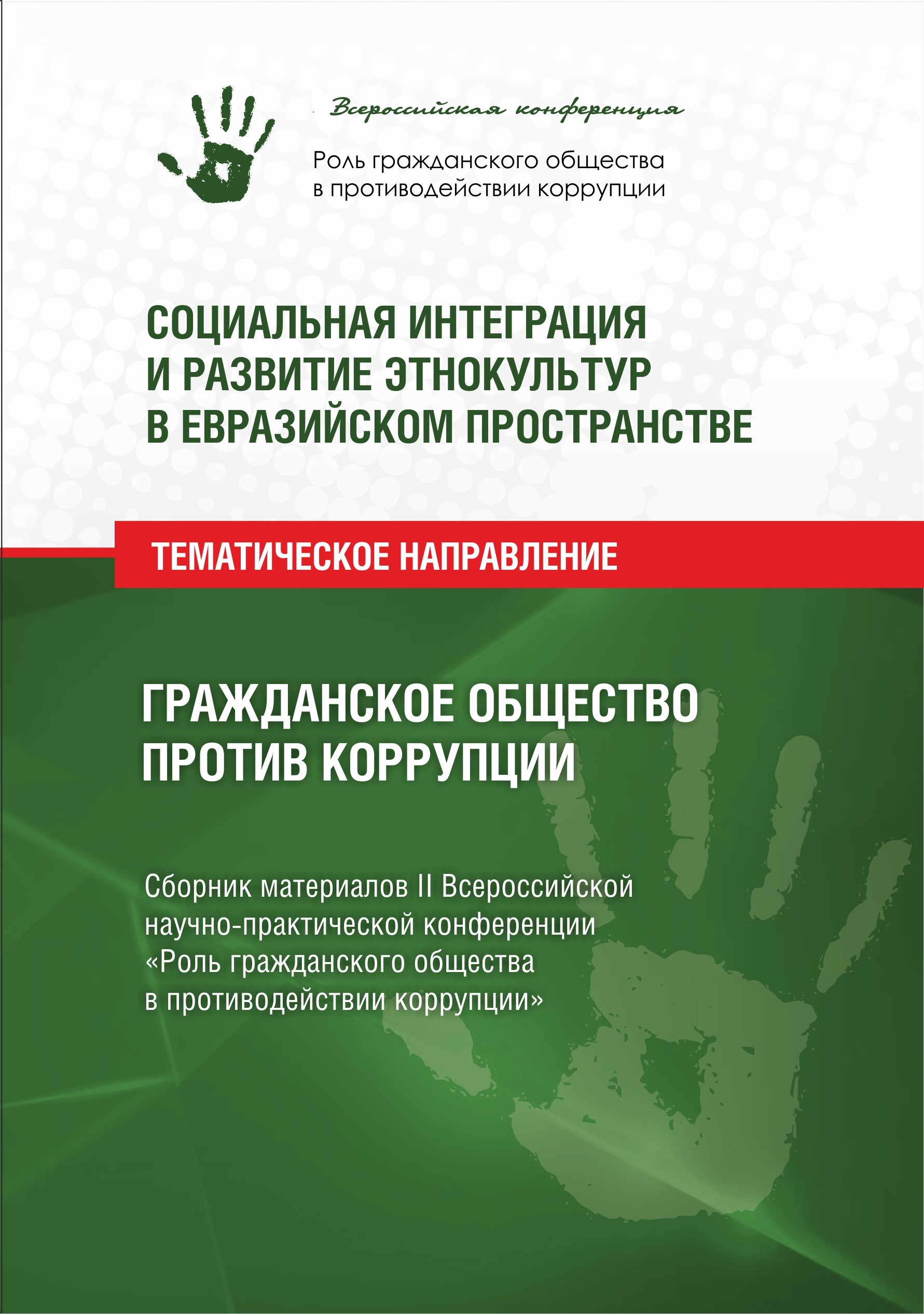THE RELATIONSHIP BETWEEN SUBJECTIVE WELL-BEING OF LEGAL PROFESSIONALS AND THEIR PROFESSIONAL SELF-ASSESSMENT AND SUCCESS MOTIVATION
Main Article Content
Abstract
Currently, the problem of subjective well-being is increasingly attracting researchers due to the need to determine the basis of the internal balance of the personality and its components. Of particular relevance is the study of the subjective well-being of the individual in the field of professional activity, since along with the objective conditions for the implementation of activities, there are personality characteristics that also affect professional success. The idea underlying the work was that one should distinguish between external and internal success, or external and internal subjective well-being, and the methods for detecting and studying these phenomena are different. External success is reflected in the status of the individual, a lawyer is a profession associated with a high social status. However, internal feeling, subjective well-being, is difficult to objectify and investigate. Subjective well-being in the professional sphere is a component of subjective well-being in general and is determined by satisfaction with professional activities and self-esteem as a professional. Professional self-esteem is an ambiguous psychological phenomenon. And our work is aimed at adding data on the determination of subjective well-being and the features of psychological well-being as conscious components of professional self-esteem and motivation for the success of legal professionals.
Downloads
Download data is not yet available.
Article Details
How to Cite
[1]
Afanasyeva, E.V. and Molokostova, A.M. 2020. THE RELATIONSHIP BETWEEN SUBJECTIVE WELL-BEING OF LEGAL PROFESSIONALS AND THEIR PROFESSIONAL SELF-ASSESSMENT AND SUCCESS MOTIVATION. Social Integration and Development of Ethnic Cultures in the Eurasian Space. 1, 9 (May 2020), 251-267.
Section
МОЛОДЕЖНЫЕ ИССЛЕДОВАНИЯ ГРАЖДАНСКОГО ОБЩЕСТВА И БОРЬБЫ С КОРРУПЦИЕЙ

This work is licensed under a Creative Commons Attribution 4.0 International License.
References
Аргайл М. Психология счастья; пер. А. Лисицыной. СПб: Питер, 2003. 272 с.
Бочарова Е. Е. Современные подходы в методологии исследования субъективного благополучия личности // Известия Саратовского университета. 2013. Т. 13. № 2. С. 73–78.
Гордеева Т. О. Психология мотивации достижения. М.: Академия, 2006. 336 с.
Зиновьева Д. М., Юнда А. В., Долгополова О. А. Профессиональные детерминанты субъективного благополучия государственных и муниципальных служащих // Известия Саратовского университета. 2015. Т. 4. № 2 (14). С. 139–146.
Карапетян Л. В. Особенности самооценки эмоционально-личностного благополучия у респондентов с различным профессиональным статусом // Актуальные проблемы психологического знания. 2017. № 1 (42). С. 55–66.
Качалова Н. Г. Профессиональное самосознание, самооценка и успешность профессиональной деятельности // Профессиональное образование: проблемы, исследования, инновации: сборник трудов научной конференции. Екатеринбург: Издательство УМЦ УПИ, 2018. С. 348–353.
Копылова О. Ю., Арутюнянц Т. С. Исследование базовых эмоций военнослужащих с разным уровнем дохода // Вестник Московского гуманитарно-экономического института. 2019. № 1. С. 124–130.
Новиков Е. В. Социальное назначение и профессиональная деятельность юриста // Юридическая наука, образование и практика: тенденции развития: сборник трудов научной конференции. Белгород: Белгородский университет кооперации, экономики и права, 2016. С. 9–21.
Седова А. С., Карпова М. А., Чихутова А. Д., Юрина В. М. Личные качества юриста, мешающие ему в профессиональной деятельности // Современные научные исследования и разработки. 2018. Т. 1. № 12 (29). С. 549–550.
Смирнов А. А., Постнова А. А. Особенности профессиональной деятельности юриста // Вестник Костромского государственного университета. 2012. № 1. С. 110–113.
Бочарова Е. Е. Современные подходы в методологии исследования субъективного благополучия личности // Известия Саратовского университета. 2013. Т. 13. № 2. С. 73–78.
Гордеева Т. О. Психология мотивации достижения. М.: Академия, 2006. 336 с.
Зиновьева Д. М., Юнда А. В., Долгополова О. А. Профессиональные детерминанты субъективного благополучия государственных и муниципальных служащих // Известия Саратовского университета. 2015. Т. 4. № 2 (14). С. 139–146.
Карапетян Л. В. Особенности самооценки эмоционально-личностного благополучия у респондентов с различным профессиональным статусом // Актуальные проблемы психологического знания. 2017. № 1 (42). С. 55–66.
Качалова Н. Г. Профессиональное самосознание, самооценка и успешность профессиональной деятельности // Профессиональное образование: проблемы, исследования, инновации: сборник трудов научной конференции. Екатеринбург: Издательство УМЦ УПИ, 2018. С. 348–353.
Копылова О. Ю., Арутюнянц Т. С. Исследование базовых эмоций военнослужащих с разным уровнем дохода // Вестник Московского гуманитарно-экономического института. 2019. № 1. С. 124–130.
Новиков Е. В. Социальное назначение и профессиональная деятельность юриста // Юридическая наука, образование и практика: тенденции развития: сборник трудов научной конференции. Белгород: Белгородский университет кооперации, экономики и права, 2016. С. 9–21.
Седова А. С., Карпова М. А., Чихутова А. Д., Юрина В. М. Личные качества юриста, мешающие ему в профессиональной деятельности // Современные научные исследования и разработки. 2018. Т. 1. № 12 (29). С. 549–550.
Смирнов А. А., Постнова А. А. Особенности профессиональной деятельности юриста // Вестник Костромского государственного университета. 2012. № 1. С. 110–113.

